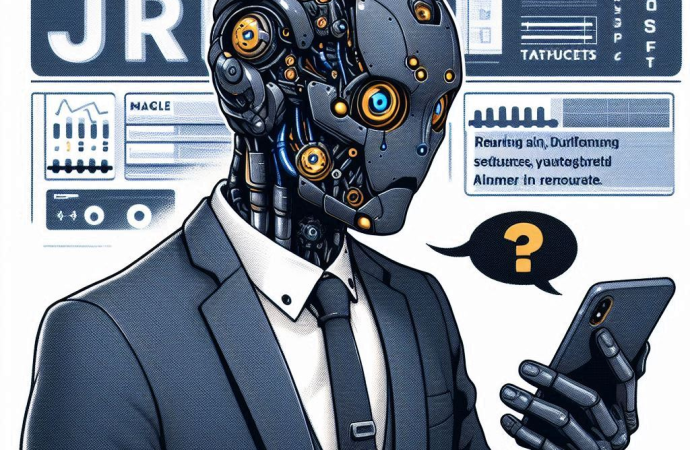About the Author Sarah Jones is a seasoned AI project manager with over 10 years of experience leading successful development teams. She’s passionate about fostering innovation and empowering junior staff to contribute their unique ideas. AI Training Fail: When Junior Staff Leads the Way In the fast-paced world of AI development, staying ahead of the
About the Author
Sarah Jones is a seasoned AI project manager with over 10 years of experience leading successful development teams. She’s passionate about fostering innovation and empowering junior staff to contribute their unique ideas.
AI Training Fail: When Junior Staff Leads the Way
In the fast-paced world of AI development, staying ahead of the curve is crucial. However, sometimes our reliance on experienced staff can create a blind spot, hindering innovation. This article explores the surprising benefits of empowering junior staff in AI training, offering project managers valuable strategies to unlock their team’s full potential.
The Pitfalls of Conventional Thinking
We often associate success in AI development with seasoned veterans, those with years of experience tackling complex algorithms. While their expertise is invaluable, an overreliance on “the way we’ve always done it” can lead to stagnation. Fresh perspectives and a willingness to challenge existing approaches are essential for driving innovation in this rapidly evolving field.
Fresh Eyes, Fresh Ideas: The Power of Junior Staff
Junior staff bring a unique advantage to the table: fresh eyes. Unburdened by the weight of past experiences, they can approach problems with a different lens, spotting opportunities and proposing solutions that might escape more seasoned minds. Their enthusiasm and willingness to experiment can be a game-changer, pushing the boundaries of what’s possible.
Unlocking Innovation: Strategies for Empowering Juniors
So, how can project managers unlock the potential of their junior staff? Here are a few key strategies:
- Foster Open Communication: Encourage junior staff to ask questions, voice their ideas, and participate actively in discussions. Create a safe space where they feel comfortable sharing even seemingly “outlandish” ideas.
- Embrace Brainstorming: Incorporate junior staff into brainstorming sessions. Their unconventional thinking can spark unexpected solutions and lead to breakthrough discoveries.
- Diversify Training Methods: Go beyond traditional training methods. Consider hackathons, mentorship programs, or even external workshops to expose junior staff to diverse approaches and cutting-edge techniques.

Picture by: Bing Designer
Collaboration is Key: Balancing Experience and Enthusiasm
Empowering junior staff doesn’t mean sidelining experienced team members. Collaboration is key. By fostering a culture of knowledge sharing and open communication, the team can leverage the combined strengths of both groups. Senior staff can provide guidance and mentorship, while junior staff bring their innovative spirit and fresh perspective to the table.
Beyond Training: Encouraging Long-Term Growth
Investing in junior staff goes beyond training for the current project. Encourage their long-term growth by providing opportunities for professional development and participation in industry conferences. This fosters a culture of continuous learning and positions them for future success within the organization.
The Future of AI Development: A Brighter, More Inclusive Horizon
By embracing the power of diverse perspectives and empowering junior staff, project managers can foster innovation and propel their AI development teams to new heights. This inclusive approach not only leads to groundbreaking solutions but also creates a more engaged and motivated workforce.
Conclusion: Rethinking Leadership in the AI Age
The future of AI development lies in breaking free from conventional thinking and embracing the power of collaboration. By empowering junior staff and fostering a culture of continuous learning, project managers can lead their teams towards a brighter, more inclusive future.
















